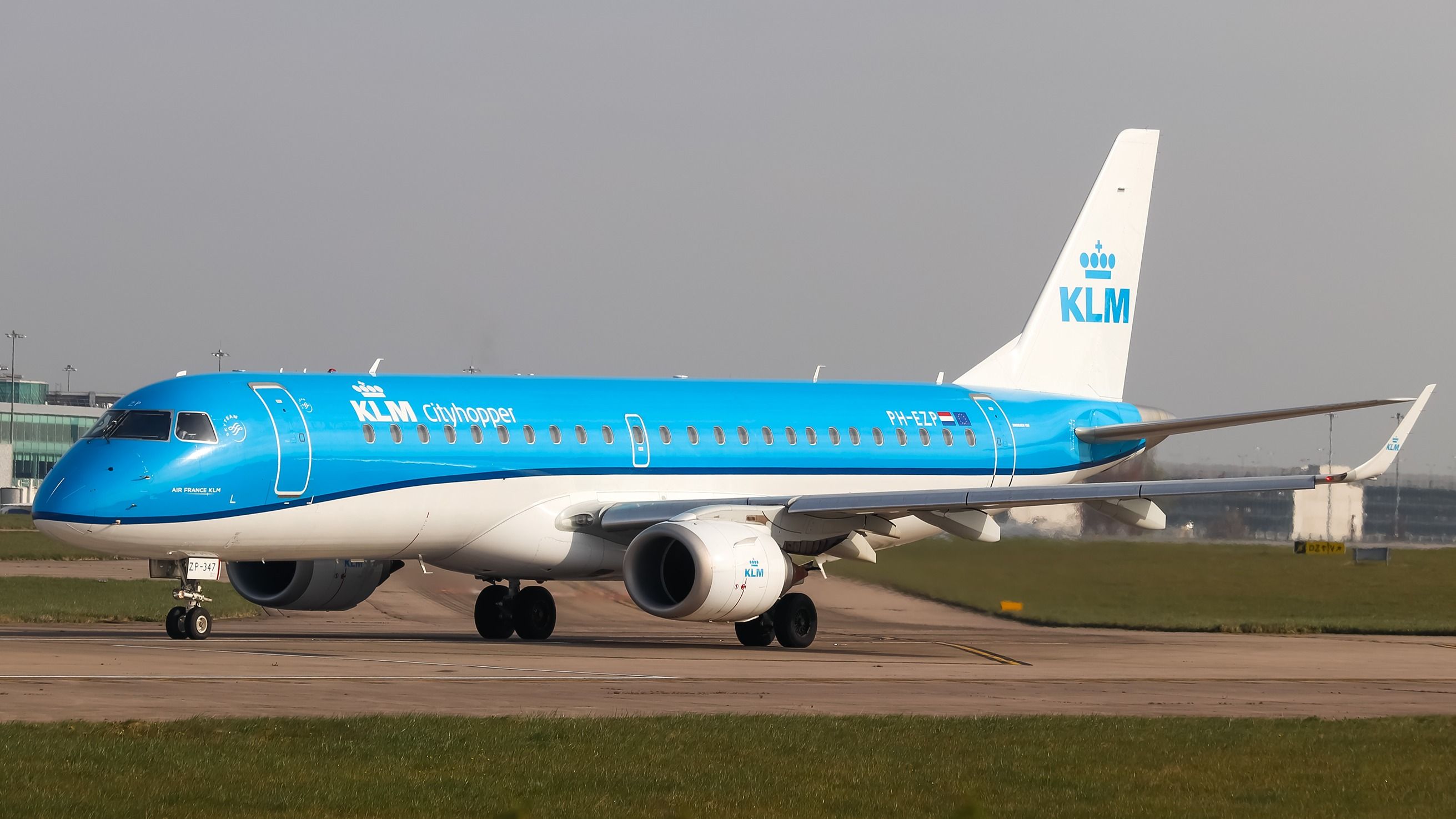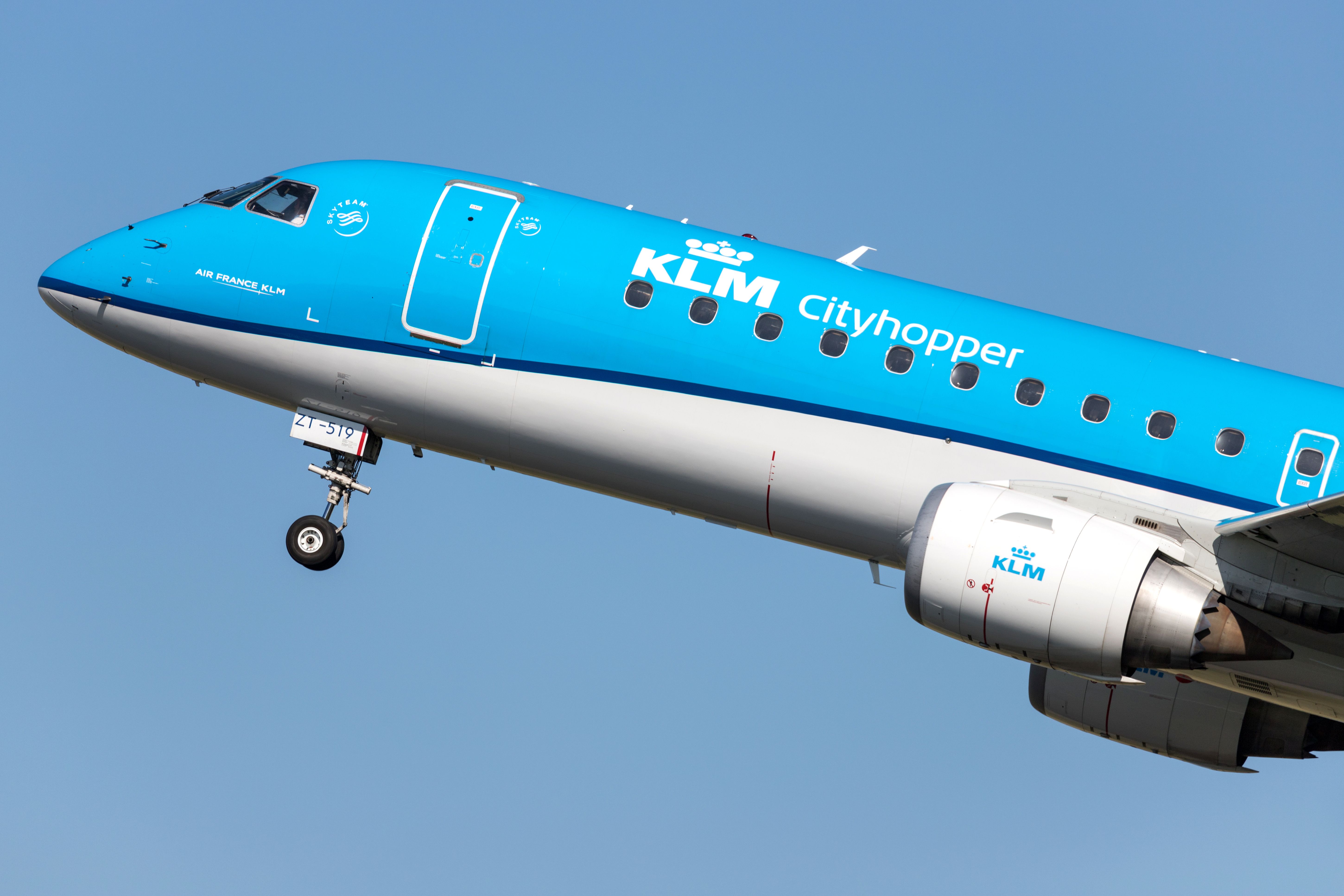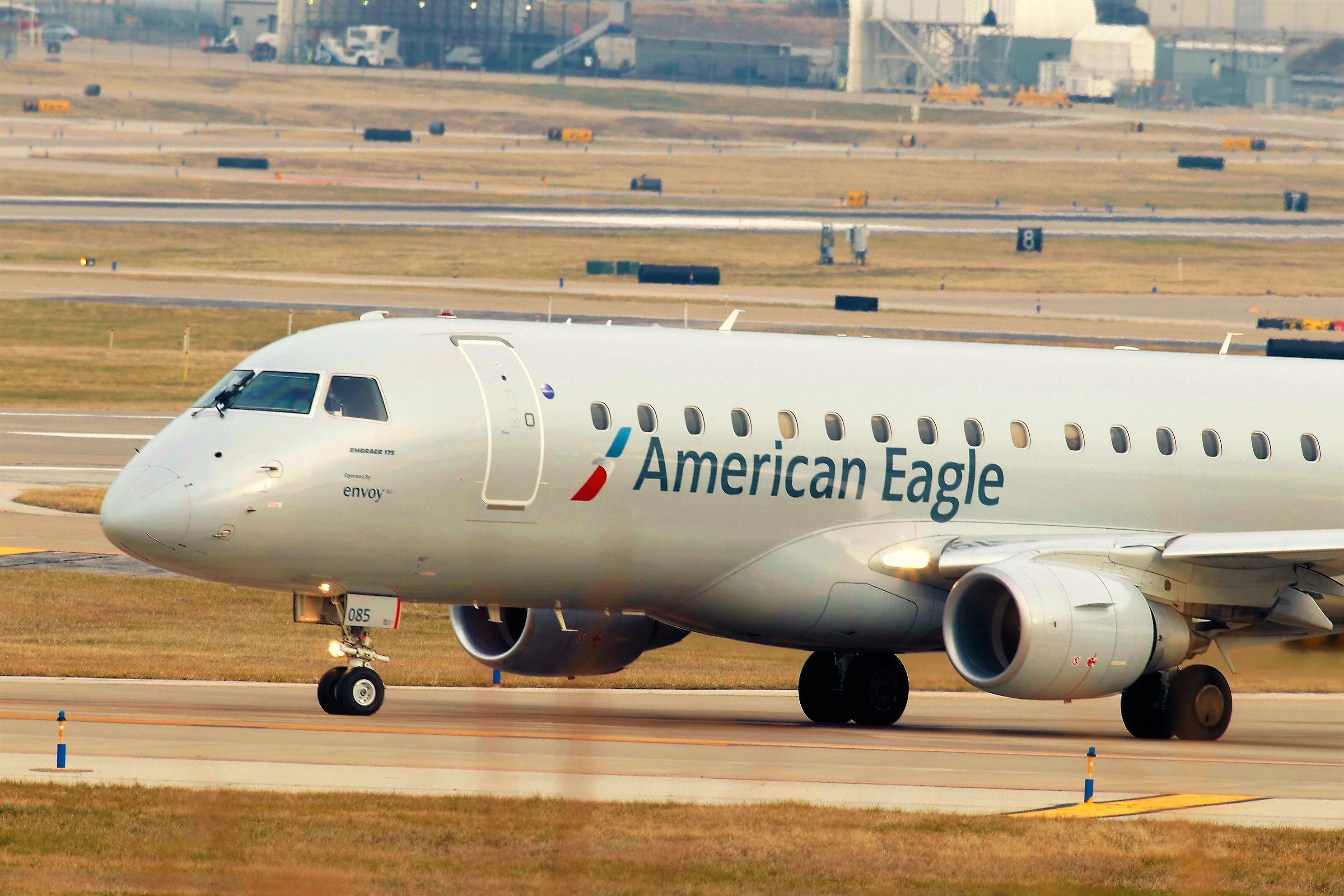Summary
- The Dutch Police has confirmed that the tragic death of a person at AMS was deliberate.
- The incident happened on May 29, 2024, involving a KLM Cityhopper Embraer E190.
- The aircraft, registered as PH-EZL, has not operated a flight since the incident on May 29.
The Royal Marechaussee (Koninklijke Marechaussee, KMar), the Royal Dutch Police, concluded that the death of a person at Amsterdam Schiphol Airport (AMS) was deliberate, with the service adding that the man was an employee of a company operating at the airport.
Injected into the engine
According to KMar, its investigation revealed that the man who worked for a company that provided services at the AMS died by suicide after being sucked into an aircraft engine. The police reiterated that the move was deliberate, adding that they would not make any additional statements out of respect for the man’s family and loved ones.
Photo: kamilpetran | Shutterstock
The incident happened on May 29, 2024, when a person was reported to have fallen into the running engine of a KLM Cityhopper Embraer E190 aircraft. The plane had just had completed its pushback and was preparing to depart AMS.
The aircraft, registered PH-EZL, had operated three flights on that day, with its fourth itinerary being scheduled between AMS and Billund Airport (BLL) on KLM flight KL1341. Flightradar24 data revealed that a replacement KLM Cityhopper Embraer E190, registered as PH-EZM, had operated the route following the incident at AMS.
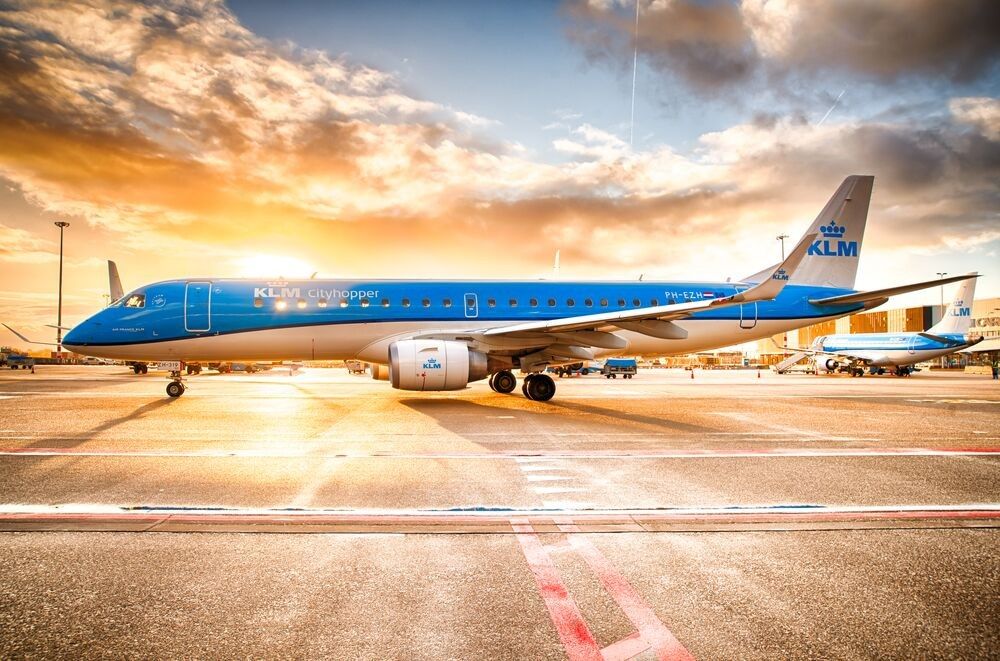
Breaking: Person Killed After Falling Into Running KLM Embraer 190 Engine At Schiphol
It’s not clear whether the fatality was an airport employee or a member of the public.
Taken out of service
The flight-tracking website’s data also showed that the E190 involved in the incident has not operated a single flight since the incident. According to ch-aviation data, the regional jet, powered by two General Electric CF34-10E, was delivered to the Dutch airline’s regional subsidiary on January 21, 2010.
Since then, the Embraer E190 has accumulated more than 21,980 flight hours (FH) and 18,873 flight cycles (FC) as of February 28, 2019, according to data from Embraer.
Photo: Bjoern Wylezich | Shutterstock
In total, KLM Cityhopper operates a fleet of 65 aircraft, all different variants of the Embraer E-jets or E2 aircraft family. The regional airline has 17 Embraer E175, 29 E190, and 18 E195-E2 aircraft, configured with 88, 100, and 132 seats, respectively.
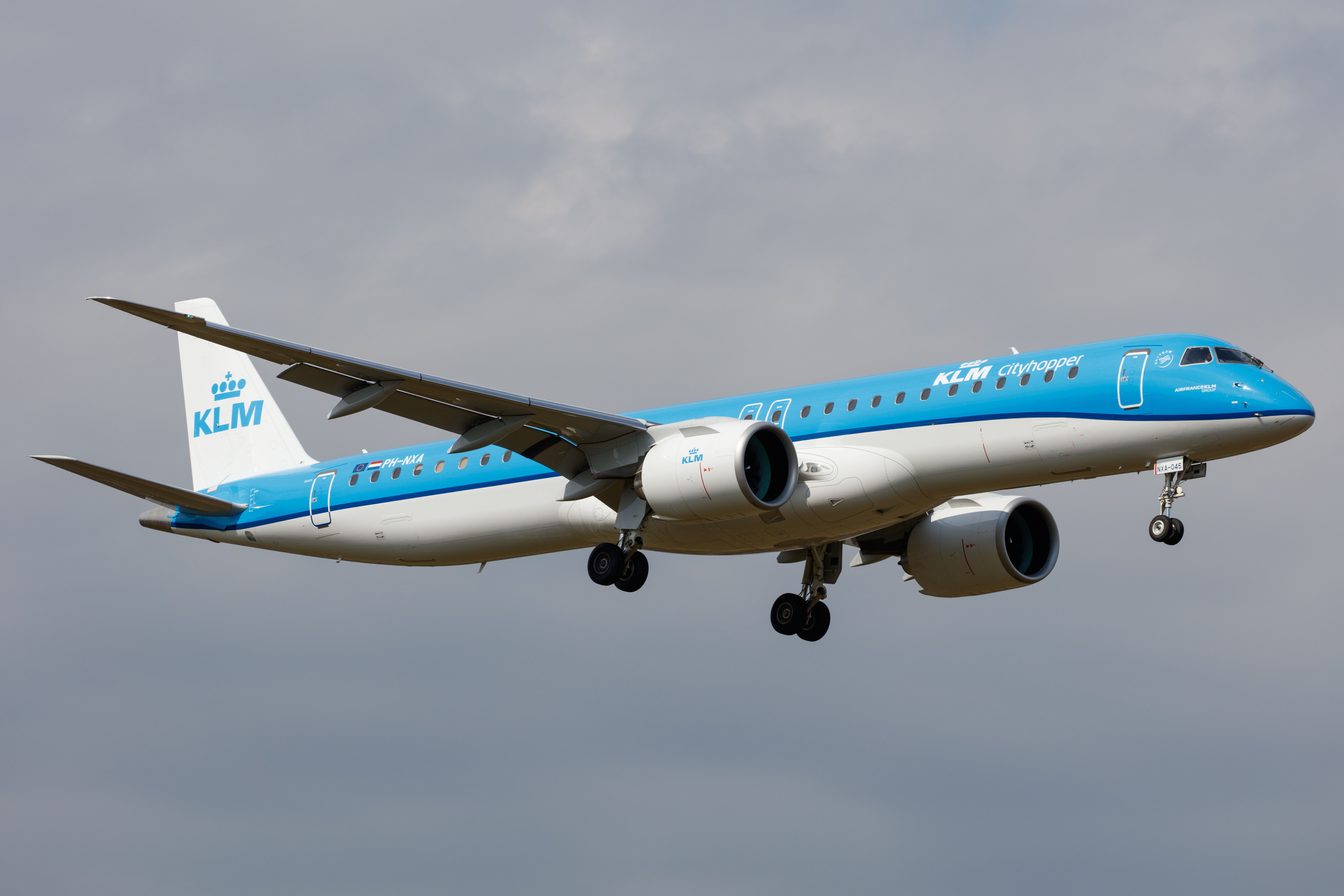
KLM Struggles With Embraer E2 Due To Pratt & Whitney Engine Issues
The carrier’s regional subsidiary, KLM Cityhopper, has been forced to make schedule changes as a result of the ongoing problems.
Similar incident in the US
In December 2022, an Envoy Air Embraer E175, registered as N264NN, was involved in a similar incident. Then, after the aircraft had landed at Montgomery Regional Airport (MGM) on a regularly scheduled flight from Dallas Fort Worth International Airport (DFW), a ground handling employee working for Piedmont Airlines was sucked in by an operational engine of the aircraft.
Photo: Wspin | Shutterstock
In its preliminary report, the National Transportation Safety Board (NTSB) concluded that the employee was “pulled off her feet and into the operating engine.” The investigators pointed out that the number one engine, located on the left-hand side, had a rotating beacon light illuminated at the time of the incident.
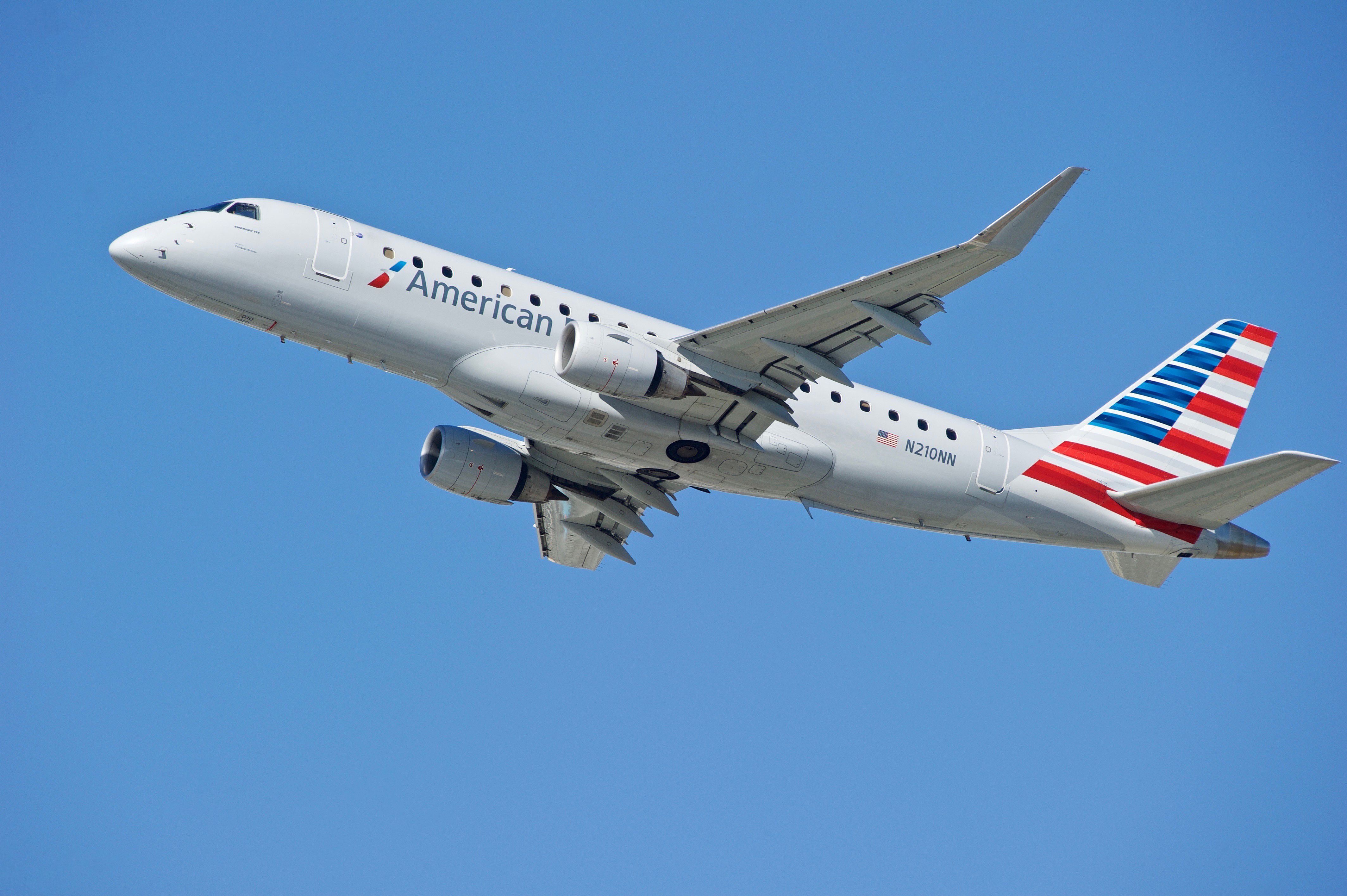
NTSB Releases Preliminary Report After Ground Worked Killed By Embraer Engine In December
The tragic accident occurred on New Year’s Eve.

